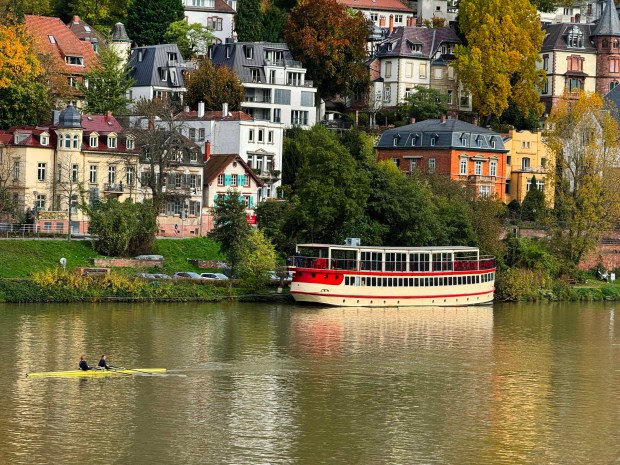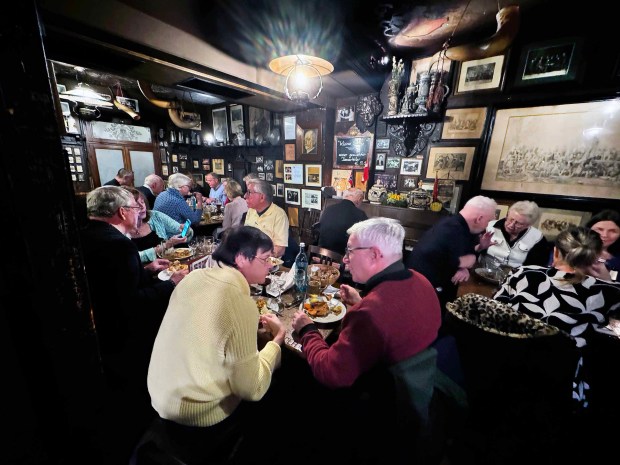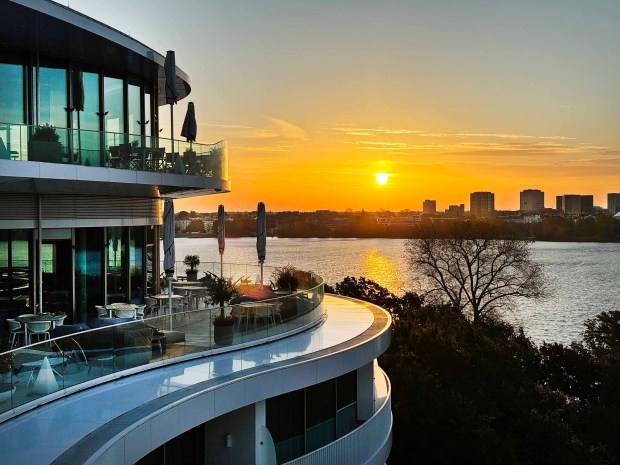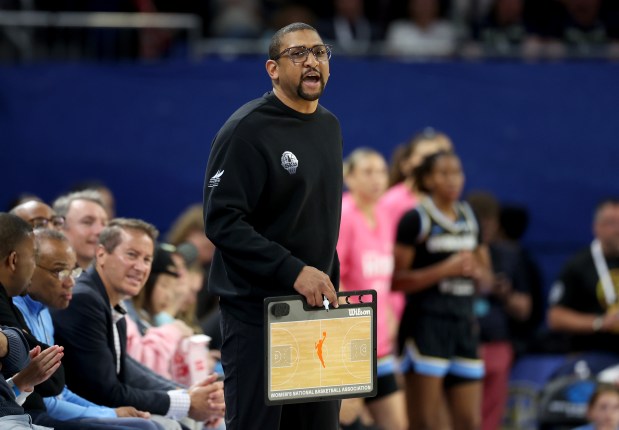The clouds at last parted and the strong northern sunshine now glistened from the blue Alster and the white-painted and red-brick buildings of Hamburg. The city bent itself around the river in unabashed prosperity. I watched through the grand picture windows of the top-floor spa of the Fontenay Hotel as the city and the river glowed in restored sunshine.
I swam the long indoor-outdoor pool from within to without, refreshing in the cool late-afternoon air, lounging during this break on a business trip (that’s right, at firm expense) all the while collecting Leading Hotels Leaders Club reward points — glowing like a winner at roulette.
The day had been filled with business meetings, but the sauna and steam room had done their good work, and I was relaxed and agreeably hungry as I joined my old friend and fellow photographer Peter, a Hamburg local, for a seven-course, four-hour dinner at the hotel’s restaurant.
Called Lakeside, it justifiably holds two Michelin stars. The server poured a creamy brown sauce over my lamb filet, and I anticipated the upcoming gianduja dessert (built around a half-moon of hazelnut chocolate paste) as an expectant father would the birth of a child.
When that too had come and been joyfully consumed, I explained to Peter that, just as today was my luxury interlude in Hamburg, which does opulence so well, tomorrow night was reserved for a note of raunch —something that Hamburg arguably does even better.
So, there I stood, one night later, in St. Pauli, one of the premier red-light districts of the world, on the street aptly named Grosse Freiheit (Great Freedom). And there I next sat, in a booth at Dollhouse Table Dance, a prominent strip club where a gleaming motorcycle spun on a turntable center stage, several women and one man taking turns atop it.
The guy was stocky and into leather, but the women wore provocative slit dresses and were as lithe and toned as gymnasts, their performances on and around the bike studied, eroticized and yet distant and abstract, as if they all had something on their minds and needed shortly to be somewhere else. Now and then, one would come by and offer, in an Eastern European accent, to dance and strip naked atop my table for 40 euros; I declined each invitation on grounds of economy.
Across the street, in a much smaller second-floor bar, athletic and bored-looking women in lingerie and impossibly large, glittering shoes took turns vigorously working a central stripper pole, each finishing up after removing her top. One of them disappeared behind a black curtain leading to a cramped room where seven Belgians drank and smoked, sharing the expense of a private striptease.
St. Pauli was filling up by then, and I decided rather rashly to take a taxi to a different kind of place a few minutes away. It is called FKK-Club Babylon, and it bills itself as a naturalist sauna, meaning it had rather the same facilities as a German hotel spa, including an indoor pool, but the darkened main room enveloped a large bar. Only men are welcome here. You pay 60 euros for admission and then change in a locker room, emerging into the common space in your evening attire of just a white terrycloth bathrobe and gray pool shoes.
I enjoyed a refreshing nude swim. (I would no sooner swim in a bathing suit than take a bath in one.) It all looked rather tame — except if you perchance noticed that about 10 of the staff were women in lingerie, discretely seated in clusters on the periphery, offering sex. That is legal in Germany, but participating on that night was outside my level of tolerance for adventure.
About 15 customers, mostly middle-aged, were drinking and chatting in small groups, none besides myself yet daring to remove his robe.
I was next on my way to a conference in Heidelberg, the famously charming university city and research center, in the German state of Baden-Wuerttemberg, to the south. I had again had the good sense to purchase my train ticket in advance, online, through the Rail Europe website. Besides helping with planning, getting your tickets that way relieves you of that momentary confusion, easily transformed into anxiety, as you try to master the workings of an unfamiliar ticket kiosk — something I still find challenging, even though I speak German.
I rode first class on an ICE bullet train, soft-spoken personnel periodically checking in on me with offers of coffee, tea and even a full lunch, all for service in my seat or in the dining car. It was much more agreeable than flying the 400-mile distance between the cities.

A graciously ruined castle sits above the old part of Heidelberg, and I tour it on every visit to this delightful small city. On the approach to it from the Neckar River below, the castle seemed to unfold like a jagged accordion along a verdant hill, framed on each side by red, orange and yellow autumn foliage.
I was fortunate that my group had booked the city’s newest river boat, the Koenigin Silvia (named for Queen Silvia of Sweden), for one of the most enjoyable things you can do in Germany — cruise down the Neckar, pausing only to transit the locks that brace two dams along the way.
A smaller ruined castle appeared well above us just before we made the return voyage. What a strange contrast this all was to my nocturnal prowling in Hamburg. Heidelberg is the kind of place where college students can bring their parents without fear of embarrassing questions.
And what is student life in Germany without a bit of drink and song? For our final evening, we booked up Zum Roten Ochsen, a pub that has been serving the university population since 1703. The ceilings were low, the wood paneling dark, initials carved so long ago into the tabletops were lacquered, and Otto von Bismarck’s portrait looked down on us as a pianist played ragtime tunes and we dined on schnitzel.

The effect was to provide Gemuetlichkeit, a difficult-to-translate term meaning a cozy feeling of warmth and inclusion.
Copies were distributed of a songbook, and we all had a go at traditional favorites such as “Ich hab’ Mein Herz in Heidelberg Verloren” (“I Lost My Heart in Heidelberg”). We made delightful botches of them all and, rewarding ourselves with warm apple strudel, ended our event as agreeably as you can hope to do in Germany.
Raunch has its place. I lived in New Orleans, so I should know. But this was the most joyful interlude of my journey — all while keeping my clothes on.





